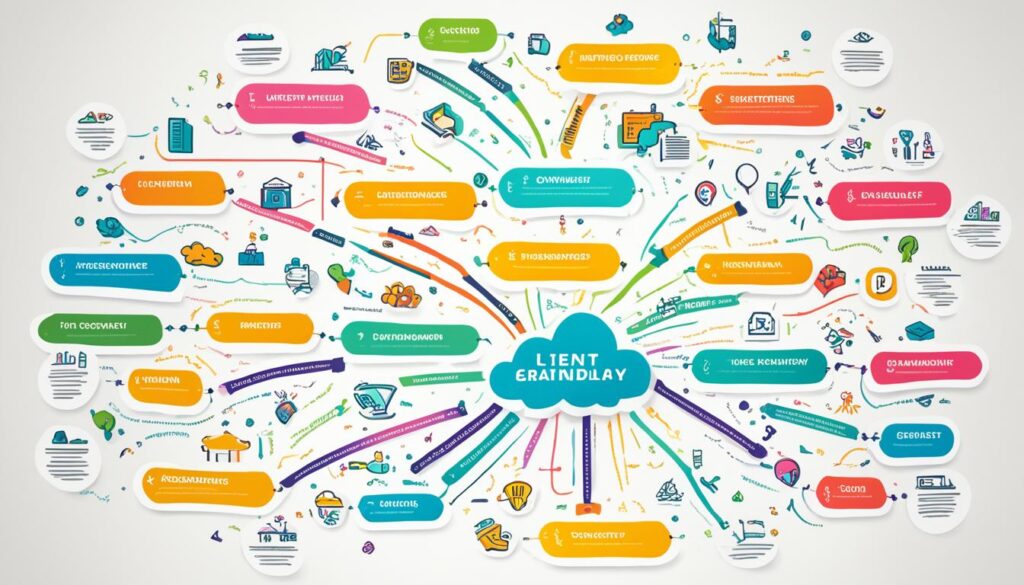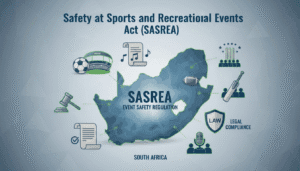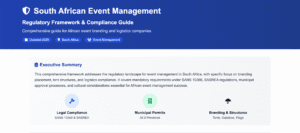Whether it’s in the vibrant cities of South Africa or elsewhere around the globe, creating the ultimate event experience starts with one essential document: the event agenda. Understanding how do you write an event agenda is more than organizing a list of activities; it’s about choreographing a narrative that captivates your attendees from start to finish. Through expert event agenda planning tips, organizers can construct a blueprint that not only outlines the event’s timeline but enriches participant interaction and knowledge sharing. A robust event program structure serves as a compass, navigating attendees through the complexities of the event with ease, thereby magnifying both the impact and the lasting memories of the occasion.
Key Takeaways
- Recognize the role of a well-crafted event agenda as a roadmap for attendees.
- Utilize strategic planning tips to enhance interaction and time management.
- Identify key components that constitute an effective event program structure.
- Adapt the agenda to reflect the event’s goals and audience expectations.
- Understand the necessity of a flexible itinerary to accommodate real-time changes.
Understanding the Significance of a Structured Event Agenda
An event agenda acts as a cornerstone of event planning, encompassing all aspects of an occasion’s framework and delivery. It serves not just as a timetable of events, but as a strategic guide that aligns with an event’s core purpose and the needs of its attendees. Let’s delve into the underpinnings of what makes an agenda instrumental to the success of any event.
Key Benefits of a Well-Planned Agenda
Adhering to the best practices for event agenda ensures that an event unfolds smoothly for all parties involved. A meticulously crafted agenda aids in managing the event’s pace and flow, building anticipation for key moments, and fostering environments conducive to learning, networking, and engagement. With the guidance of an event schedule organizer, businesses can maximize the utility and reach of their agenda, driving home messages and achieving set goals efficiently.
Components That Make Up The Event Backbone
The key to creating an effective event agenda lies in its components. Each segment of the event agenda—from welcoming speeches to interactive sessions—forms part of a cohesive structure that supports the event’s narrative. Event itinerary design pulls these elements together, sequencing them in a manner that enhances the attendee experience and optimizes retention of information.
By strategically organizing the flow of activities, presenters can transition smoothly between topics, all the while retaining the attendees’ interest and fueling their eagerness to participate.
Here is an illustration of what an effective event backbone looks like:
| Time | Session | Presenter | Topics Covered |
|---|---|---|---|
| 08:00 – 09:00 | Registration and Welcome Coffee | – | Networking, Introductory Interactions |
| 09:00 – 10:00 | Opening Keynote | Renowned Industry Leader | Innovations in Field, Future Outlook |
| 10:00 – 10:15 | Break | – | Refreshments |
| 10:15 – 12:00 | Panel Discussion | Varied Industry Experts | Industry Challenges, Collaborative Solutions |
| 12:00 – 13:00 | Lunch Break | – | Recess, Informal Discussions |
Customizing the Agenda to Match Event Objectives
The adaptability of an event agenda template is paramount as it affords the ability to craft an experience tailored to the event’s goals and audience’s preferences. An event agenda formatting guide provides the structural range needed to fit various event models, whether it involves in-depth workshops for a niche audience or broad-based expositions catering to a larger public. Integrating event agenda planning tips into the customization process ensures that the agenda not only serves as a programmatic guide but also functions as a strategic touchpoint for engagement and success.
- Careful consideration of session lengths to prevent fatigue and maintain attention.
- Interactive elements to facilitate participant engagement and connection.
- Buffer times for unexpected delays or in-depth audience Q&A sessions.
In summary, the event agenda is a fundamental tool in orchestrating a successful event. From refined timelines to a tailored session structure, the meticulous design of an agenda is reflective of strategic forethought and intent, reverberating through the very fabric of an event’s execution.
How do you write an event agenda?
Embarking on the task of event agenda planning demands meticulous preparation and an eye for detail. It begins with crystallizing your goals and objectives, which becomes your north star guiding every agenda-related decision. Essential to setting the scene for an impactful event in South Africa, budgeting and team assembly cannot be understated, as these components act as the bedrock from which your event will flourish.

Event itinerary design is an art, harmoniously balancing creativity with functionality. Reflecting the event’s personality through branding sets the tone, while integrating technology and marketing strategies propels the event into the forefront of attendees’ minds. An adaptable and attendee-centric approach that is sensitive to feedback during and post-event, ensures both engagement and continuous improvement.
- Establish Clear Goals: Define the purpose and desired outcomes for the event to direct all subsequent planning steps.
- Form a Dynamic Team: Assemble a team with diverse skills to cover various aspects of event planning.
- Select Optimal Date and Venue: Choose date and venue aligning with the event objectives and attendee convenience.
- Consider Branding: Ensure your event’s branding resonates with its core message and audience expectations.
- Leverage Tech Tools: Utilize advanced software for registration, scheduling, and attendee engagement.
- Marketing Strategy: Create a comprehensive plan to promote the event effectively.
- Measure Outcomes: Establish KPIs and metrics to evaluate the event’s success post-conclusion.
- Incorporate Breaks and Feedback: Factor in downtime for guests and opportunities for feedback to adapt and improve.
Following these best practices for event agenda formation establishes a robust foundation upon which unforgettable events are curated. It’s a strategic playbook that ensures every segment of your event is thoughtfully designed and purpose-driven.
| Agenda Item | Description | Purpose |
|---|---|---|
| Welcome Note | A brief introduction welcoming attendees and outlining the event. | To set the stage and create a warm, inviting atmosphere. |
| Keynote Address | An impactful session from a keynote speaker setting the thematic direction of the event. | To inspire and provide valuable insights aligned with event goals. |
| Networking Break | A scheduled interval for guests to connect and discuss shared interests. | To foster relationships and enhance the attendee experience. |
| Educational Workshops | Targeted sessions focused on delivering knowledge and skills. | To educate and provide practical takeaways for attendees. |
| Closing Remarks | A final recap of the event and appreciation for participants and organizers. | To conclude the event on a positive note and set the stage for future engagement. |
Each component within the event agenda serves a distinct purpose, contributing to a holistic and enriching experience for every attendee. Thoughtful planning and execution of these steps are key to unlocking the full potential of your event, leaving a lasting impression that extends far beyond the itinerary itself.
Conclusion
In the intricate dance of event planning, the rhythm is often dictated by the meticulous structure of its agenda. For South Africa’s vibrant event landscape—a tapestry of diverse audiences and dynamic gatherings—the creation of a sterling event agenda template transcends mere administrative chore to become the cornerstone of success. Clear communication, robust event program structure, and the pulse of attendee engagement underpin every memorable experience. These elements converge to not only fulfill but to surpass the objectives set forth, leaving an indelible mark on each participant.
The role of an event schedule organizer cannot be overstated; it is a role defined by the orchestration of time and activities to yield a seamless flow. The payoff for investing time and resources into fashioning an effective agenda is clear: a heightened event experience that engenders positive feedback and reflective acclaim. Every minute detail, from laying out transparent goals to stimulating post-event conversations, is a thread in the tapestry of event excellence—a testament to the necessity of methodical planning and skillful execution.
As we draw the curtains on the discussion of event agendas, it is evident that the path to a triumphant event is paved with strategy, insight, and adaptability. Minding such an approach ensures that the vibrant and multifaceted events hosted within South Africa not only meet the benchmark but set new standards for others to aspire to. The agenda, therefore, is far more than a document—it is a blueprint for success, a catalyst for community, and a gateway to accomplishment.
FAQ
What are the initial steps in writing an event agenda?
The initial steps include defining the event’s goals and objectives, determining your target audience, selecting an appropriate format, and deciding on the event’s themes or topics. This foundation aids in curating the content and activities for the agenda effectively.
How can you ensure an event agenda is well-planned?
To ensure your event agenda is well-planned, integrate key components such as a detailed timeframe of activities, scheduled breaks, clear session descriptions, and information on speakers. Use an event agenda template to provide a consistent and organized approach.
What are the best practices for event agenda planning?
Best practices include staying focused on the event’s objectives, being realistic with time allocations, incorporating variety and engagement opportunities, staying flexible to accommodate changes, and distributing the agenda in advance.
How important is the customization of an event agenda?
Customizing the event agenda is crucial as it needs to resonate with the specific objectives of the event and the expectations of attendees. It should be relevant to the event’s format, whether it’s in-person, virtual, single-day, or multi-day, and be reflective of the event’s theme and branding.
What elements should be included in an effective event program structure?
An effective event program structure should include an opening and welcome, keynotes, breakout sessions or workshops if applicable, networking opportunities, lunch and coffee breaks, closing remarks, and any special events or entertainment relevant to the event purpose.
How can technology be used in organizing an event schedule?
Technology can be utilized through event management software and apps to create and share digital agendas, track attendance, gather feedback, and update attendees in real-time about any changes or important announcements.
What is the role of an event schedule organizer?
An event schedule organizer is responsible for the planning, coordination, and execution of the event’s itinerary. They manage time slots, coordinate with speakers and presenters, and ensure the event flows smoothly according to the agenda.
How can you design an event itinerary that caters to a diverse audience?
To cater to a diverse audience, include a mix of sessions that cover a range of topics, offer various participation formats like Q&A, panel discussions, and workshops, and ensure accessibility considerations are in place for all attendees.
What is the significance of an event agenda formatting guide?
An event agenda formatting guide provides a standardized structure to ensure clarity, readability, and professionalism in the presentation of the event details. It facilitates consistent communication of the schedule, speakers, and sessions to attendees.
Why is it beneficial to use an event agenda template?
An event agenda template streamlines the process of agenda creation, saving time and ensuring nothing is overlooked. It also ensures a cohesive look and feel that can be customized to match the branding and style of the event.
What should be done after the event in regards to the agenda?
After the event, collect feedback from participants regarding the agenda’s effectiveness in meeting their needs and expectations. Use this information to make adjustments for future events and to measure the overall success of the event against its objectives.




